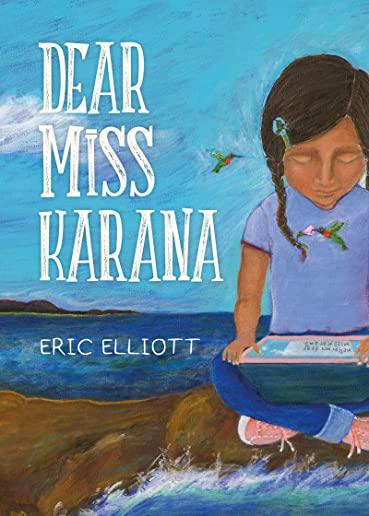
description
5While reading Island of the Blue Dolphins at school and learning about the real woman stranded on San Nicolás Island, ten-year-old TÃshmal begins writing emails to "Miss Karana" in hopes of talking to her spirit. When she arrived on the mainland of Southern California, Miss Karana spoke a language that no one could understand even back then, and all that remains is a recording of the song she sang when she was found on the island. TÃshmal realizes that some of the words sound very similar to Chamtéela (Luiseño), the language spoken on her reservation. As she writes to Miss Karana, TÃshmal becomes more and more resolved to understand the lone woman's song. The only person able to help her is a grouchy great uncle, Wéh Powéeya ("two tongues"), the last living person fluent in the language of their ancestors from the belly button of the ocean: the islands including San Nicolás. Together, TÃshmal and Wéh Powéeya must discover what the lone woman said long ago in order to help her spirit finish the journey West.
First written in Chamtéela and developed in accordance with fourth grade Common Core State Standards, Dear Miss Karana tells a compelling story of family, determination, and cultural perseverance.
member goods
No member items were found under this heading.
Return Policy
All sales are final
Shipping
No special shipping considerations available.
Shipping fees determined at checkout.







